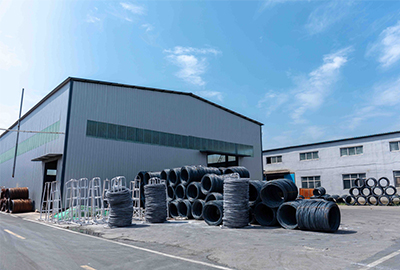Stud Bolt Manufacturing Techniques and Industry Best Practices for Enhanced Performance
Oct . 01, 2024 08:29 Back to list
Stud Bolt Manufacturing Techniques and Industry Best Practices for Enhanced Performance
Understanding 225-13RN Stud Bolt Factories A Comprehensive Overview
Stud bolts are an integral component in numerous industries, particularly in the construction, manufacturing, and oil and gas sectors. Among the various specifications and standards that govern their production, the 225-13RN standard stands out. This article will delve into the significance of 225-13RN stud bolts, the manufacturing process, key features, applications, and considerations in selecting a stud bolt factory.
What is 225-13RN?
The designation 225-13RN refers to a specific standard that defines the dimensional and mechanical properties of stud bolts. Typically utilized in high-strength applications, stud bolts manufactured under this standard require precise engineering to ensure their compatibility with corresponding nuts and the operational demands of various applications. The 225 may denote a particular size or strength, whereas 13RN suggests a specification for the thread and finish type.
The Manufacturing Process
The production of 225-13RN stud bolts involves several critical stages
1. Material Selection The first step in manufacturing stud bolts is selecting the appropriate materials. Common materials include carbon steel, stainless steel, and alloy steel, which possess the necessary mechanical properties to withstand high loads and corrosive environments.
2. Forging After material selection, the raw materials undergo a forging process to shape them into bolts. This process involves heating the metal and shaping it under high pressure to achieve desired dimensions and improve strength through work hardening.
3. Machining Once the bolts are forged, they are machined to achieve precise dimensions. This step includes cutting threads, which must meet the 225-13RN specifications, ensuring compatibility with corresponding nuts.
4. Heat Treatment To enhance the mechanical properties of the stud bolts, heat treatment is applied. This process can improve tensile strength and hardness, making the bolts suitable for demanding applications.
5. Surface Finish The final step in the manufacturing process is applying a surface finish. This may involve galvanizing, anodizing, or applying protective coatings to enhance corrosion resistance and prolong the life of the bolts.
Key Features of 225-13RN Stud Bolts
Stud bolts adhering to the 225-13RN standard exhibit several important features
- High Strength Designed for heavy-duty applications, these bolts are engineered to withstand significant loads without deformation. - Corrosion Resistance Depending on the material and finish chosen, 225-13RN stud bolts can effectively resist corrosion, making them suitable for harsh environments, such as offshore oil rigs or chemical plants.
225-13rn stud bolt factories

- Compatibility The precise threading and dimensions ensure that these bolts can be paired with standard nuts, providing reliable and secure fastening
.Applications
The versatility of 225-13RN stud bolts means they are used in various applications, including
- Construction In the construction industry, stud bolts are commonly used in steel structures, bridges, and buildings, providing essential connections that ensure structural integrity.
- Oil and Gas In the oil and gas sector, stud bolts are crucial for flanged connections in pipelines and pressure vessels, where high strength and resistance to environmental factors are paramount.
- Manufacturing In manufacturing, these bolts may be used in machinery assembly, ensuring that components remain securely fastened under operational stresses.
Selecting a Stud Bolt Factory
Choosing the right factory for purchasing 225-13RN stud bolts is a critical decision that impacts the reliability of your projects. Here are some considerations
- Reputation and Experience Select a factory with a strong reputation and extensive experience in producing high-quality fasteners. Customer reviews and industry certifications can provide insights into their reliability.
- Quality Control A good manufacturer will implement stringent quality control measures throughout the production process to ensure the finished product meets all specifications.
- Customization Options Depending on specific project requirements, it may be beneficial to choose a factory that offers customization in terms of material, size, and surface finish.
- Delivery and Support Consider the factory's delivery capabilities and customer support services. Timely delivery and responsive support can make a significant difference in project execution.
Conclusion
225-13RN stud bolts are vital components in many structural and mechanical applications, offering strength, reliability, and corrosion resistance. By understanding their manufacturing process and features, and carefully selecting an appropriate factory, industries can ensure the safe and efficient completion of their projects. As technology and materials continue to evolve, the relevance of high-quality stud bolts remains, underscoring their importance across various sectors.
Latest news
-
Reliable Wire Bolts Suppliers | Quality Zinc Plated Fasteners
NewsAug.26,2025
-
Wire Bolts Suppliers: Durable & Reliable Fasteners for Every Project
NewsAug.25,2025
-
Premium Cabinet Bolts Supplier | Wholesale & Custom Solutions
NewsAug.24,2025
-
Reliable Axle Nuts Supplier | Quality & Precision Fasteners
NewsAug.23,2025
-
Durable Bolts for Lawn Mower Handle - Top Supplier & Manufacturer
NewsAug.22,2025
-
High-Quality Bolts for Lawn Mower Handle Supplier & Manufacturer
NewsAug.21,2025
